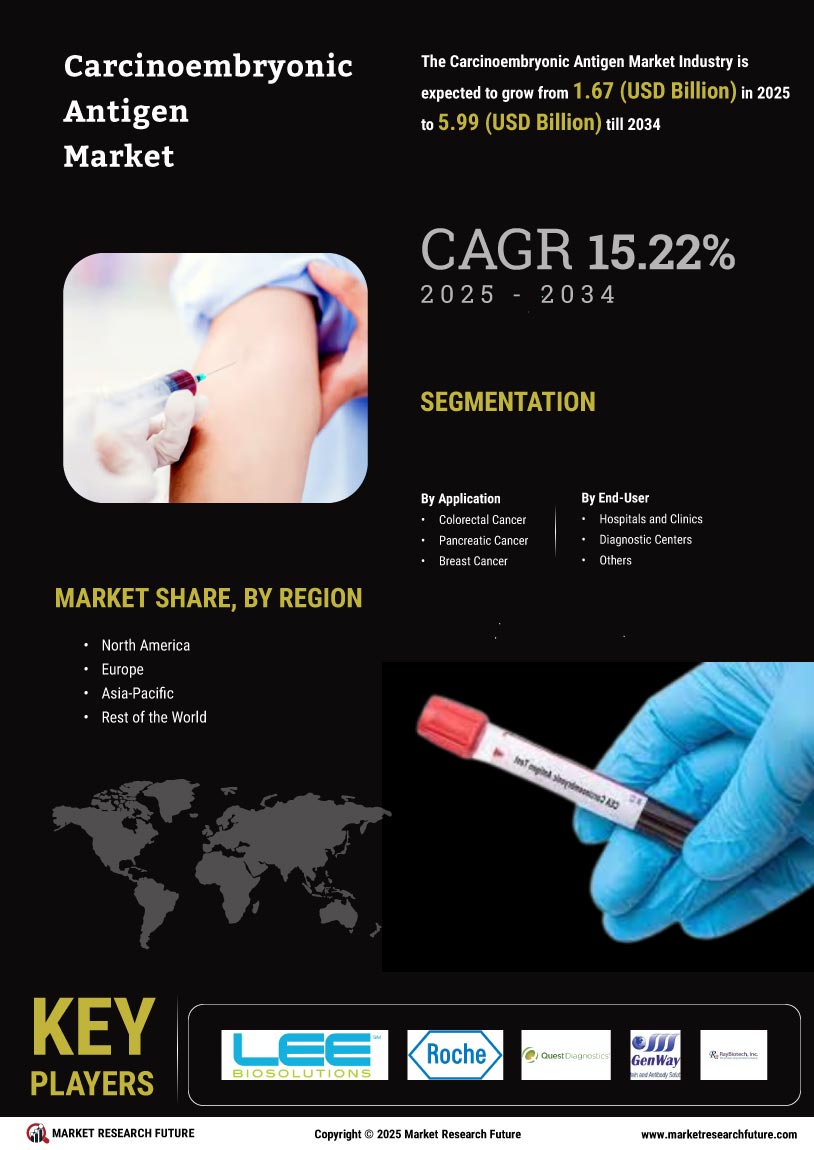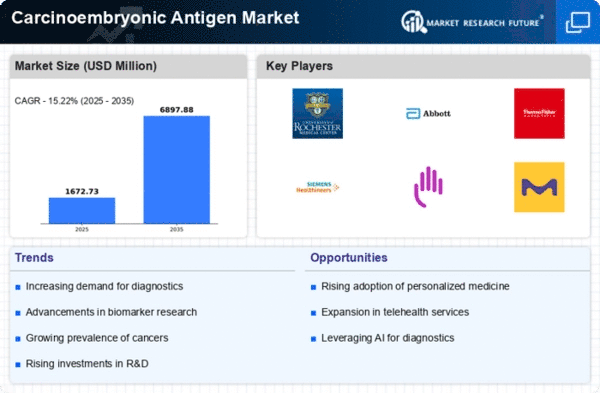North America : Market Leader in Innovation
North America is poised to maintain its leadership in the Carcinoembryonic Antigen market, holding a significant market size of $725.89M. The region's growth is driven by increasing cancer prevalence, advancements in diagnostic technologies, and supportive regulatory frameworks. The demand for early cancer detection and personalized medicine is propelling market expansion, with a focus on innovative solutions and improved patient outcomes.
The United States is the primary contributor to this market, with key players like Roche, Abbott Laboratories, and Thermo Fisher Scientific leading the charge. The competitive landscape is characterized by continuous R&D investments and strategic partnerships aimed at enhancing diagnostic capabilities. The presence of advanced healthcare infrastructure further supports market growth, ensuring that North America remains at the forefront of Carcinoembryonic Antigen advancements.
Europe : Emerging Market with Growth Potential
Europe, with a market size of €450.0M, is witnessing a robust growth trajectory in the Carcinoembryonic Antigen sector. The region benefits from increasing awareness of cancer diagnostics, supportive healthcare policies, and a growing emphasis on early detection. Regulatory bodies are actively promoting initiatives to enhance diagnostic accuracy, which is expected to drive market demand significantly.
Leading countries such as Germany, France, and the UK are at the forefront of this market, with major players like Siemens Healthineers and Merck KGaA contributing to innovation. The competitive landscape is marked by collaborations between healthcare providers and diagnostic companies, aimed at improving patient outcomes. As the market evolves, Europe is set to become a key player in the global Carcinoembryonic Antigen landscape.
Asia-Pacific : Rapidly Growing Market Segment
Asia-Pacific is emerging as a significant player in the Carcinoembryonic Antigen market, with a market size of $225.0M. The region's growth is fueled by rising cancer incidences, increasing healthcare expenditure, and a growing focus on advanced diagnostic technologies. Governments are implementing policies to enhance healthcare access, which is expected to further boost market demand in the coming years.
Countries like China, Japan, and India are leading the charge, with a mix of local and international players such as Abbott Laboratories and Bio-Rad Laboratories. The competitive landscape is characterized by rapid technological advancements and collaborations aimed at improving diagnostic accuracy. As healthcare infrastructure continues to develop, Asia-Pacific is poised for substantial growth in the Carcinoembryonic Antigen market.
Middle East and Africa : Emerging Market with Challenges
The Middle East and Africa region, with a market size of $50.88M, is gradually developing in the Carcinoembryonic Antigen market. The growth is driven by increasing awareness of cancer diagnostics and improving healthcare infrastructure. However, challenges such as regulatory hurdles and limited access to advanced diagnostic technologies hinder rapid market expansion. Governments are working to enhance healthcare policies to address these issues.
Countries like South Africa and the UAE are leading the market, with a growing presence of international players. The competitive landscape is evolving, with local companies partnering with global firms to enhance their offerings. As the region continues to invest in healthcare, the Carcinoembryonic Antigen market is expected to see gradual growth, albeit at a slower pace compared to other regions.

















Leave a Comment